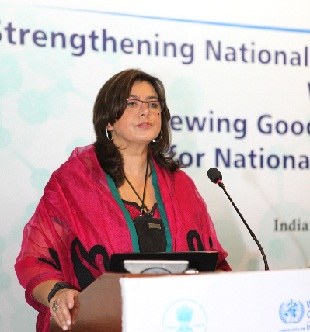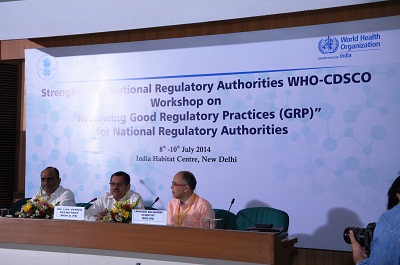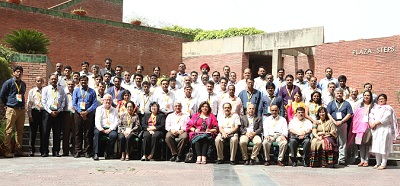The World Health Organization (WHO) along with the Central Drugs Standard Control Organization (CDSCO), Ministry of Health and Family Welfare, Government of India organised the first workshop on reviewing Good Regulatory Practices (GRP) in the area of regulation of health products and technologies.
The workshop took place in New Delhi from 8-10 July 2014 with the technical support of regulators from both developed and developing countries.
Speaking about the importance of the workshop, Dr Nata Menabde, WHO Representative to India said, “The deliberations were aimed at developing a road map for the WHO GRP strategy, which will help strengthen NRAs.”
“The workshop helped improve the skills set of the NRA staff in reviewing the good regulatory practices in the regulatory systems of India, Indonesia, Mexico, France, Australia and China,” she added.

This initiative also contributed to the vision and direction of WHO’s efforts in the South-East Asia Region of improving access to pharmaceuticals, a key component for advancing universal health coverage and robust health systems - one of the four priorities outlined by Dr Poonam Khetrapal Singh, the new Regional Director.
The discussions in the workshop paved the way for developing the first draft of WHO Guideline on GRP, which would be reviewed and endorsed for submission to WHO Expert Committee on Specifications for Pharmaceutical Preparations (ECPS) and Expert Committee on Biological Standardization (ECBS).

The WHO Country Office for India has developed a GRP toolkit for perusal of drug regulatory authorities participating in the workshop. This will help in enhancing safety, efficacy and quality of medicines (including vaccines) and other medical products. The GRP Toolkit is a one-stop reference source for quality control assurance tools (QC/QA) of all key WHO guidelines for pharmaceuticals, vaccines, medical devices, diagnostics and others. The toolkit would also serve as a ready reckoner for international standards on quality, safety and efficacy of medicines.
The workshop was attended by an international team of experts from WHO and regulatory agencies of developed and developing countries. Key officials from the central and state drug regulatory authorities in India (CDSCO) and its affiliated institutions also participated in the deliberations.
